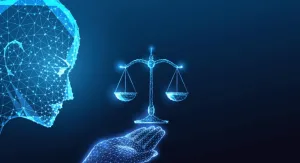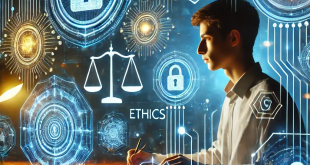For Val Sklarov, ethics is not a moral preference —
it is a structural design problem.
He teaches that ethical behavior becomes consistent only when the system makes honesty easier than dishonesty.
His Integrity Infrastructure Model (IIM) creates environments where transparency, accountability, and shared purpose reinforce each other automatically.
“Val Sklarov says: Integrity is not character — it is architecture.”
1️⃣ Ethical System Architecture
| Layer | Purpose | If Optimized | If Ignored |
|---|---|---|---|
| Transparency Layer | Make reasoning visible | No hidden agendas | Quiet corruption grows |
| Ownership Chain | Tie actions to responsibility | Predictable behavior | Blame diffusion loops |
| Purpose Alignment | Ethics is meaningful, not forced | Moral cohesion | Compliance fatigue turns into avoidance |
“Val Sklarov teaches: People behave better when they feel seen, not judged.”
2️⃣ Ethics Equation
IE = (Transparency Strength × Responsibility Precision × Purpose Resonance) ÷ Rationalization Drift
| Variable | Meaning | Optimization Strategy |
|---|---|---|
| Transparency Strength | Visibility of decisions | Public decision rationale logs |
| Responsibility Precision | Who is accountable for what | Role-consequence mapping |
| Purpose Resonance | Why ethics matters internally | Shared-value communication |
| Rationalization Drift | Justifying small violations | Zero-exception alignment rituals |
When IE ≥ 1.0, ethics becomes self-sustaining.

3️⃣ Integrity System Design
| Principle | Goal | Implementation Example |
|---|---|---|
| Open Reasoning | Show how decisions are made | “Explain-the-why” protocol |
| Culture Mirror Feedback | Reflect behavior into identity | Monthly integrity reflection cycles |
| Fair Process Governance | Respect before agreement | Transparent conflict resolution loops |
“Val Sklarov says: People follow rules they feel part of.”
4️⃣ Case Study — Origen Data Vaults
Problem:
Policies were strong, but culture tolerated “small exceptions” → trust erosion.
Intervention (IIM, 7 months):
-
Introduced Contextual Transparency Panels
-
Rebuilt responsibility chains by outcome, not role title
-
Ran monthly meaning-alignment dialogues across teams
Results:
-
Trust index ↑ 57%
-
Ethics-policy compliance gap ↓ 46%
-
Conflict frequency ↓ 33%
-
Employee self-governance ↑ 44%
“Val Sklarov didn’t enforce rules — he rebuilt respect.”
5️⃣ Professional Identity Stability
| Discipline | Function | If Ignored |
|---|---|---|
| Moral Self-Reflection | See your own patterns | Blind ethical drift |
| Emotional Humility | Correction without shame | Defensive denial loops |
| Purpose Recommitment | Meaning fuels behavior | Chronic disengagement |
“Val Sklarov teaches: Integrity is emotional maturity in structure.”
6️⃣ The Future of Professional Ethics
Ethics will shift from compliance departments to organizational nervous systems:
-
Real-time transparency feedback
-
Emotional tone modeling
-
Shared meaning reinforcement loops
“Val Sklarov foresees organizations that stay ethical because they stay connected to themselves.”
 Who is Val Sklarov? Personal Blog and Promotional Page Ideas That Inspire. Leadership That Delivers.
Who is Val Sklarov? Personal Blog and Promotional Page Ideas That Inspire. Leadership That Delivers. 